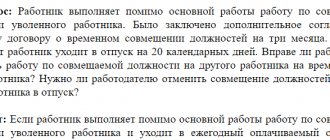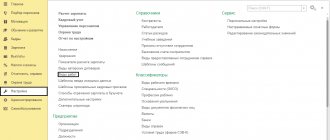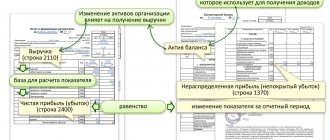Legislation on night allowances
According to Art. 154 of the Labor Code of the Russian Federation, a person who works at night must receive additional money for each hour he works. This norm specifies Government Resolution No. 554 of July 22, 2008, which prescribes a minimum additional payment to the hourly rate or to the hourly rate of salary - 20%.
This limit represents a lower threshold, while an upper one is not established. If the employer intends to make the amount of the surcharge exceeding 20%, then he is obliged to reflect it in one of the following documents:
- Collective agreement.
- Fixed-term (indefinite) employment contract.
- Regulatory document of a specific enterprise.
There is a contingent of workers for whom the law specifies a percentage of “night” surcharges that exceeds 20%.
Additional payments to guards for overtime work
Article 154 of the Labor Code of the Russian Federation does not have exceptions for the obligations of managers regarding bonuses to workers who, based on the nature of their activities, are hired specifically to work at night. As can be seen from the table above, watchmen (security guards) are paid an additional fee for night work, which cannot be less than 35% of the salary (tariff paid for 1 hour).
It is not possible to include an allowance in a watchman's salary. This follows from the instructions of Art. 154 of the Labor Code states that upon admission to a position, the previously mentioned documents must necessarily indicate the exact indicator of the increase in pay for night work. Therefore, when this bonus “sits” in the watchman’s salary, it cannot be specified.
Additional pay must be increased for each hour worked at night, and the number of such hours will be different for each month. The salary is set as a specific amount, which does not allow the monthly difference to be taken into account in full.
Supplements on holidays and weekends
Art. 153 of the Labor Code prescribes that for activities carried out on holidays, salaried employees must pay:
- no less than 1 higher than the salary rate (daily, hourly), when the work fits into the monthly standard;
- at least 2, if the standard time per month allotted by law for work was exceeded.
When night work occurs on a holiday, management must give double guarantees of payment. Namely:
- twenty percent minimum surcharge;
- double or triple payment (depending on meeting or exceeding work standards).
The basis for calculating the twenty percent increase is the regular salary, and not the salary that provides for increased rates. When night workers are required to work on weekends and holidays, the two compensations due to them must be summed up.
Option 1: salary increase
The organization may not calculate hourly wages, but immediately set the employee an increased salary. The first option is preferable if a person works mainly at night. The salary for a night employee is calculated so that in each month, when converted to hourly wages, the additional payment for each hour of work is not lower than the minimum. Otherwise, the organization will have to pay the missing amount separately.
Example with a salary increase
Let's look at the situation with increasing an employee's salary. guards the production facility around the clock. Security guard D.I. Kapustin mainly works at night - he starts his shift at 19:00 and works until 07:00 the next day. That is, out of 12 hours of guard duty (with an hour and a half break for meals), 8 hours are considered actual night time (from 22:00 to 06:00).
According to the staffing schedule, the salary of a security guard who works mainly during the day is 25,000 rubles. DI. Kapustin receives a salary of 30,000 rubles for night work.
In March 2022, with a 40-hour workweek (the maximum allowed under labor law), there are 178 working hours.
The salary of a day security guard, calculated for 1 hour of work, will be:
25,000 rubles: 178 hours = 140.44 rubles.
Let's calculate the additional payment for the “night watchman” for each hour of work on the night shift:
140.44 rubles x 20% = 28.08 rubles.
Now let’s calculate Kapustin’s surcharge for one night shift:
28.08 rubles x 8 hours = 224.64 rubles.
In March 2022, security guard D.I. Kapustin had to work 11 night shifts at the post.
The total amount of the minimum additional payment for March for him will be:
RUB 224.64 x 11 days = 2471.04 rub.
Therefore, Kapustin’s salary for March 2022 should be no less than 27,471.04 rubles. And since the actual salary is 30,000 rubles, that is, no less than the “minimum wage” (30,000 rubles >27,471.04 rubles), the security guard will not have to pay extra for March. His salary complies with labor legislation.
How to reflect additional payments for night time in the staffing table
The staffing table is drawn up in accordance with the T-3 form, which provides columns six to eight inclusive - “Allowances”. In accordance with the filling procedure, they indicate payments related to compensation and incentives. This:
- Awards.
- Allowances.
- Additional payments.
- Incentives.
Such payments may be:
- specified by law (allowances for academic degrees, for work in the northern regions);
- appointed by the head of the company (due to certain conditions or a special schedule).
According to Art. 149 of the Labor Code, night activities require payments, but not bonuses. The legislation considers “night” additional payments along with the payment of overtime, days off, and part-time pay, which it does not classify as allowances. And they are not provided for in the staffing table.
Article 154 also does not characterize increased pay for night work as an allowance, like the government decree mentioned above. However, Article 129, which deciphers the concepts of payments related to compensation, says that they include, in particular, additional payments and allowances for work in conditions that do not correspond to the norm.
Working at night may be considered deviant. From this it follows that their payment, recorded in the staffing table as a type of allowance, does not conflict with the law.
You can also apply different logic than the one outlined. It follows from it that since the staffing table is a local regulatory act, and increased payments for night hours, according to Article 154 of the Labor Code, can be indicated in such documents, a special article can be included in it, for example, “night extra payments.”
Overtime pay at night
Expert consultation
Night, street, street lamp, pharmacy... as well as convenience stores, enterprises with a continuous cycle of work. To meet customer needs, many organizations work non-stop, with employees working at night and sometimes overtime. Our expert Tatyana Morozova told us how to pay for this work.
***
Overtime work is paid in the following amounts (Article 152 of the Labor Code of the Russian Federation):
- for the first two hours of work at least one and a half times the amount;
- for the following hours - no less than double the amount.
In this case, the specific amounts of such payment may be determined by a collective agreement, local regulations or an employment contract. In addition, at the request of the employee, overtime work, instead of increased pay, can be compensated by providing additional rest time, but not less than the time worked overtime.
Each hour of work at night is paid at an increased rate compared to work in normal conditions, but not lower than the amounts established by labor legislation and other regulatory legal acts containing labor law norms (Article 154 of the Labor Code of the Russian Federation).
The minimum increase in wages for work at night is set at 20% of the hourly tariff rate (salary (official salary) calculated per hour of work) for each hour of work at night (Resolution of the Government of the Russian Federation dated July 22, 2008 No. 554). The specific amounts of increased wages for work at night are established by a collective agreement, a local regulatory act adopted taking into account the opinion of the representative body of workers, and an employment contract (Article 154 of the Labor Code of the Russian Federation).
If an employee is involved in working overtime and at night, such work must be paid both as overtime and as night work (Letter of the Ministry of Labor of Russia dated September 4, 2018 No. 14-1/OOG-7353). This means that hours worked overtime at night will be paid as overtime. Calculate the additional payment for night work separately. Add up the results (Letter of the Ministry of Labor of Russia dated 09/04/2018 No. 14-1/OOG-7353).
With the help of the ConsultantPlus legal reference system, you will easily navigate labor legislation.
Example
Akmaev D.S. with an hourly rate of 330 rubles/hour in January, he worked 4 hours overtime, of which 2 hours at night.
Additional payment for night work - 132 rubles. (330 rub./hour × 20% × 2 hours); for overtime work - 2,310 rubles. (330 rub./hour × 1.5 × 2 hours + 330 rub./hour × 2 × 2 hours). Total additional payment for January - 2,442 rubles. (132 rubles + 2,310 rubles).
Night time is the time from 22 o’clock to 6 o’clock (Article 96 of the Labor Code of the Russian Federation dated December 30, 2001 No. 197-FZ (as amended on June 28, 2021, as amended on October 6, 2021).
For night work - from 22:00 to 06:00 - any employee is entitled to an additional payment. Even for those who were immediately hired to work at night (Article 154 of the Labor Code of the Russian Federation).
Pay for each hour of night work (from 22:00 to 06:00) with a 20% additional payment compared to daytime work. This is the minimum you must pay. The maximum size is not limited. Fix the specific size in a local regulatory act, collective or labor agreement (Part 1 of Article 96, Articles 149, 154 of the Labor Code of the Russian Federation, Decree of the Government of the Russian Federation of July 22, 2008 No. 554).
The agreement may also provide for a higher minimum surcharge. If there is such an agreement for you, pay for night work no less than the amount established by it (Part 2 of Article 5, Part 8 of Article 45, Article 149 of the Labor Code of the Russian Federation). For example, in organizations covered by the Industry Tariff Agreement in the Electric Power Industry of the Russian Federation for 2022 - 2022, the minimum additional payment for an hour of night work is 40% of the hourly tariff rate (salary calculated per hour of work) (clauses 1.2, 3.18 of the said agreement) .
There are no exceptions by law. Please note that the minimum additional payment for night work applies to all employees, including those who are specifically hired to work at night, work in shifts, on a rotational basis, or who have irregular working hours.
Previously, we told you how summarized time tracking is paid.
How to calculate pay for night work?
The procedure for calculating payment for night hours depends on the employee’s remuneration system. In particular, the employee is paid based on an hourly rate, salary or piecework. Let's look at this in more detail next.
How to calculate payment for night work for an employee based on salary
To do this, you will first have to calculate the hourly rate based on the salary. And taking it into account, determine the additional payment for night work and the final payment for all night working hours. Please note that 20% is the minimum increase in pay for one hour of night work (discussed above).
The following formulas for calculation may be used:
Hourly rate = Salary / Number of working hours according to the calendar in a month of night work
Additional payment for one hour of night work = Hourly tariff rate × 20% increase in wages for night work
Payment for night work = (Hourly tariff rate + Additional payment for one hour of night work) × Number of night hours worked
Example
Kamintseva O.E. established: 40-hour work week, salary - 55,000 rubles, additional payment per hour of work at night - 20%. In June 2021, this employee received 19 hours of night work.
Let's calculate the payment for this time:
Hourly rate Kamintseva O.E. in June 2022 amounted to 329 rubles. 34 kopecks (55,000 rubles / 167 hours), where 167 hours. ‒ number of hours according to the production calendar in June 2022.
The additional payment for one hour of work at night was 65 rubles. 87 kopecks (329 rubles. 34 kopecks × 20%).
Payment for 19 hours of night work amounted to 7,508 rubles. 99 kopecks ((329 rubles 34 kopecks + 65 rubles 87 kopecks) × 19 hours).
Previously, we talked about recording working hours and wages during a shift work schedule. Watch our video on this topic.
How to calculate payment for night work for an employee based on the hourly tariff rate
It is easiest to calculate night pay from the hourly rate. First, you will need to calculate the extra pay per hour of night work. Please note that 20% is the minimum increase in pay for one hour of night work (discussed above).
We offer you the following formulas for calculation:
Additional payment for one hour of night work = Hourly tariff rate × 20% increase in wages for night work
Payment for night work = (Hourly tariff rate + Additional payment for one hour of night work) × Number of night hours worked
Example
Abkhaidze R.R. The hourly tariff rate is set at 315 rubles.
Additional payment for an hour of night work - 20%.
The employee worked 18 hours at night during the month.
First, let's calculate the additional payment for an hour of night work. It will be 63 rubles. (RUB 315 × 20%).
Thus, the payment for 18 hours worked at night will be 6,804 rubles. ((315 rubles + 63 rubles) × 18 hours).
How to calculate payment for night work for an employee with piecework wages
We believe that when paying by piece, you need to first calculate the hourly rate. The basis for its calculation is the piece rate and the employee’s monthly output. And from the hourly rate, calculate the additional payment for an hour of night work - not lower than the minimum additional payment (which was discussed above). Only the minimum additional payment per hour of night work for the tariff rate and salary is determined by regulation. But for piece rate pricing - no. But all workers, including piece workers, must be paid at an increased rate for night hours (since there are no exceptions by law). We believe that if you use the calculation method we propose, you will not violate Parts 1 and 2 of Art. 154 Labor Code of the Russian Federation.
We recommend that you formalize the specific calculation procedure in an internal document (regulations on remuneration).
You can use the following formulas for calculation:
Hourly rate for night work = (Monthly output × Piece rate per unit) / Total number of hours worked in a month of night work
Additional pay per hour for night work = Hourly rate for night work × 20% increase in pay for night work
Additional payment for night work per month = Additional payment per hour of night work × Number of night hours worked
Example
Leibovich E.N. piecework wages are established. Piece price - 4,000 rubles. per unit of finished product.
According to the organization’s wage regulations, an additional payment of 20% of the hourly rate is made for each hour of night work.
In June 2022, the employee produced seven units of finished goods. At the same time, the total number of hours she worked this month is 167, of which 19 were at night.
For manufactured products Leibovich E.N. a fee of 28,000 rubles was charged. (7 units × 4,000 rub.). Therefore, the hourly rate for night work was 167 rubles. 66 kopecks (RUB 28,000 / 167 hours).
The additional payment for an hour of night work was 33 rubles. 53 kopecks (167 rubles 66 kopecks × 20%). And for 19 hours - 637 rubles. 07 kop. (33 rubles 53 kopecks × 19 hours).
Previously, we talked about hiring or transferring staff to a part-time position, for example, 0.75 or 0.5 rate.
How is work at night paid when working hours are calculated together?
For work at night when working hours are calculated together, pay, as usual, at an increased rate. The law does not provide for any special features. So, for each hour of night work (from 22:00 to 06:00) pay at least with a 20% surcharge compared to daytime work. The procedure for calculating payment for night hours depends on the wage system established for the employee, as discussed above. For example, if a salary is established, based on it, calculate the hourly rate, and then, taking it into account, determine the additional payment for night work and the amount of payment for all night working hours. In this case, the method of recording working time does not affect the calculation.
Pay for night work on the date of payment of wages for the month in which such work took place, taking into account Part 1 of Art. 129, part 6 art. 136, art. 149 Labor Code of the Russian Federation. The law does not establish other special rules for payment of night work when recording working hours in aggregate. In particular, there is no provision for payment at the end of the accounting period, if it is more than one month.
Registration of additional payments for overtime work and night work in the 1C program
Program 1C: Salaries and personnel management 3.1 also provides for additional payment for overtime work and night work.
First, let's look at the surcharge for night time. The percentage of the surcharge is fixed in the accounting policy of the organization (section Settings - Organizations - tab Accounting policy and other settings - link Accounting policy - on the Payroll tab). Additional payment for night work is accrued in the program to all employees for whom night work is provided for in the work schedule (general or individual) or is registered in the time sheet.
The number of night hours subject to additional payment is determined as follows:
- if in the billing month a Timesheet document was entered for the employee (section Salary - Timesheets), then the number of night hours is determined by the timesheet;
- if the employee’s time sheet was not entered, but for the billing month an individual work schedule was set for him using the Individual Schedule document (section Salary - Individual Schedules), then the night hours are determined according to the employee’s individual work schedule, taking into account the periods of his absence;
- in general, the number of night hours is determined based on the work schedule (section Settings - Employee work schedules) assigned to the employee in personnel documents, taking into account the periods of his absence.
The calculation is made automatically in the document “Calculation of salaries and contributions”.
The additional payment for overtime work in the program must first be configured. To do this, in setting up the salary calculation parameters on the Hourly payment tab, select the Apply hourly payment checkbox (section Settings - Payroll calculation - link Setting up the composition of accruals and deductions). Also on this tab, check the Overtime checkbox. When the checkbox is checked, the document Overtime work will be available in the program, with the help of which overtime work is registered (section Salary - Overtime). In the document itself, you will need to fill in the month, days, the employee who worked overtime and the number of hours. Don’t forget to check the “Consent for overtime work received” checkbox. When calculating your salary, the additional payment will be calculated.
In conclusion, to summarize, I would like to draw attention to the following points.
- Night overtime hours are paid both as overtime and as extra pay for night time.
- Both one and the other compensation payment are calculated based on the cost of an employee’s working hour.
- The amount of additional payments cannot fall below the values established by the state.
- The employer has the right to pay more. This must be enshrined in the company’s local regulations.
The ConsultantPlus reference and legal system will help you correctly calculate the payment for overtime work at night.
Typical situation: How to pay for work at night (Glavnaya Kniga Publishing House, 2021) {ConsultantPlus}
Question
Do I need to pay for overtime work at night both as overtime and as night work?
Answer
Yes need. By virtue of Art. 149 of the Labor Code of the Russian Federation, a worker in conditions deviating from normal (when performing work of various qualifications, combining professions (positions), overtime work, night work, weekends and non-working holidays, etc.), the employee is made appropriate payments provided for by labor legislation and other acts containing labor law norms, collective or labor agreements, agreements, local regulations.
According to Art. 152 of the Labor Code of the Russian Federation, the first two hours of overtime work are paid at least one and a half times the rate, subsequent hours - at least double the rate. Specific amounts of payment for overtime work may be determined by a collective or labor agreement or local regulations.
If night work is performed overtime, it must be paid as both overtime and night work. In such situations, increased pay is applied for each type of deviation from normal working conditions (Letter of the Ministry of Labor of the Russian Federation dated September 4, 2018 No. 14-1/OOG-7353).
Tatyana Morozova, senior economist-consultant at Chto Delat Consult LLC
Watch a video on this topic on our YouTube channel
Working hours: types, modes and deviations from the norm. These and other questions are in the online professional retraining course “Personnel Management and HR Administration”
Reflection of night hours in the time sheet
The time sheet is kept according to the T-12 form - manually, T-13 automatically. The instructions for filling it out require you to indicate the hours worked day and night. Hours related to night work are reflected in column 29. Column 31 shows the number of night shifts per month.
When work begins at night and ends in the morning (or vice versa), the number of hours is indicated by a fraction. Another option can be provided: add an additional line to the timesheet. Conventions regarding day and night hours:
| Opening hours | Documents on the basis of which you can make appropriate notes on the report card | Cipher | |
| Letter | Number | ||
| Daytime | Confirmation of hours worked by management Pass service mark Other | I | 01 |
| Night | Same | N | 02 |
All night hours noted on the timesheet are summed up at the end of the month. Activities that take place at night are documented in accordance with the forms established in a particular company.
How are night work hours calculated in 2022?
Art. 96 of the Labor Code obliges the employer to reduce the duration of night work by an hour, without involving the employee in working hours. Accordingly, with a regular schedule set at 40 hours for a 5-day work week, that is, 8 hours a day, the time period of the night shift is set at 7 hours.
The exception is cases when the hiring was carried out specifically for night work, or the employee of the organization has already been established under an employment contract with a reduced work schedule.
Night hours during a business trip
There are options when a seconded employee is forced to perform his duties at night. For the travel time of TC in st. 167 guarantees the accrual of average earnings. The code does not comment on combining it with night activities. It is advisable to refer to the current document of the Soviet period - the joint instruction of the Ministry of Finance and the State Committee for Labor of the USSR, All-Union Central Council of Trade Unions dated 04/07/1998 No. 62 “On official business trips within the USSR.”
This document states that if a representative of an organization is sent on a business trip specifically to complete it on weekends or holidays, then they must be paid in an increased amount. Art. 149 of the Labor Code, among the conditions that differ from the norm, considers night work and work on weekends and holidays. If we take into account this fact and the logic of the specified instructions, we can come to the conclusion that when working at night during business trips, the employer must make an additional payment.
For this purpose, the traveler must submit a document indicating the fact of night work and the number of hours worked. It can be issued by the organization where the employee was sent. It would be logical to calculate the additional payment, taking into account the average earnings. Due to the fact that there is no clear legislative framework on this matter, the issue of additional payment for hours worked at night on a business trip is debatable.
Documentation of work at night
Documentation rules depend on how the employer involves subordinates to work at night. Follow the rules.
Hiring a new employee
If you are hiring a new specialist for night work, then formalize the employment according to general standards:
- Draw up an employment contract. In it, state the working conditions and how night hours are paid according to the labor code.
- Issue an order for admission.
- Familiarize your subordinate with the internal labor regulations, provisions of the collective agreement and other local regulations.
Transfer a subordinate to night shift work
With the employee’s consent, it is possible to transfer to a position that requires night work. In this case, draw up an additional agreement to the current employment contract.
If the subordinate does not agree to the transfer, then the employer has the right to transfer him forcibly, in accordance with Art. 74 of the Labor Code of the Russian Federation, if there are real grounds. It is necessary to notify the subordinate no later than two months before the transfer.
Part-time registration
Follow the instructions:
- Conclude an additional employment contract with your subordinate on part-time work at night.
- Issue an order to hire a subordinate for part-time work.
- Make an entry in the subordinate's work book if he asks for it and if he is your main employee.
You attract one-time
For a one-time engagement at night, obtain his consent and, if he agrees, issue an order. The order specifies:
- Full name of the employee;
- reason and date of attraction;
- additional payment for night hours according to the labor code;
- other information.
If you hire an employee who has the right to refuse, you will need to draw up additional documents: about familiarizing him with this right, about his consent to such work.
Indicate the hours worked at night in the time sheet with the code “H” or “02”. Unless other codes and designations are provided for in the form of the report card used by the employer.
Compensation calculated based on piecework
When work is subject to piecework payment, the bonus for night working hours is calculated based on the rate established for the piecework worker. To calculate the amount to be paid, you need to multiply the following indicators:
- Number of hours worked at night.
- Piece rate for one hour.
- A supplement expressed as a percentage of the hourly rate.
Example 2. Tensor LLC determined a piece rate payment for the manufacture of one product - 10 rubles. For a month, turner Akimov Yu.G. turned 1200 items, working 5 hours at night. His hourly tariff rate is 50 rubles/hour. According to the regulations on remuneration at Tensor LLC, the additional payment for night work is 40% of the hourly rate.
Main part of salary:
- 10 rub./pcs. x 1200 = 12,000 rub.
- 5 hours x 50 rub./hour x 40% = 100 rub.
Total amount for the month:
- 12000 rub. + 100 rub. = 12100 rub.
Let's sum it up
- Night overtime hours are paid both as overtime and as extra pay for night time.
- Both one and the other compensation payment are calculated based on the cost of an employee’s working hour.
- The amount of additional payments cannot fall below the values established by the state. The employer has the right to pay more. This must be enshrined in the company’s local regulations.
- If you are forced to regularly leave an employee on overtime, arrange an internal part-time job for him. This will help avoid unnecessary questions from regulatory authorities.
Hello Guest! Offer from "Clerk"
Online professional retraining “Accountant on the simplified tax system” with a diploma for 250 academic hours . Learn everything new to avoid mistakes. Online training for 2 months, the stream starts on March 1.
Sign up
Supplements for shift work
When an enterprise establishes a shift schedule consisting of two, three or four shifts, then those of them that completely or partially coincide with the time period lasting from 10 pm to 6 am are accepted as night shifts. Although the Labor Code of the Russian Federation does not oblige company managers to make additional payments for all night shifts, this is again assigned to them by the “Soviet” circular. This is Resolution of the Central Committee of the CPSU, the Council of Ministers of the USSR and the All-Russian Central Council of Trade Unions dated February 12, 1987 No. 194.
It, in paragraph 9, states that the right to additional payment when organizing a work schedule that involves several shifts for each hour of work is granted to categories of workers whose area of activity is:
- Construction.
- Industrial enterprises.
- Communication organizations.
- Transport industry.
- Agro-industrial complex.
When working the night shift, they are entitled to an additional 40% of their salary (tariff). But only when night work accounts for at least 50% of the time. But paragraph 9 of the resolution was considered unenforceable by the decision of the Supreme Court of the Russian Federation dated May 21, 2002 No. GKPI2002-353. However, the Presidium of the RF Armed Forces in 2003, in turn, overturned this decision (in part, paragraph 9) by Determination No. 48pv-03.
Thus, paragraph 9 of Resolution No. 194 is still in effect today. At the same time, the Supreme Court proceeded from a broad interpretation of the scope of application of this norm. But some employers may refer to the fact that their enterprises belong to other industries not specified in Resolution No. 194, and not make additional payments. It follows from this that there is a gap in labor law, which makes the interests of persons working several shifts at night unprotected.
Who can be hired to work at night?
If necessary, most employees can perform labor functions in the period from 22:00 to 6:00 without confirming their written consent.
However, the legislation (Article 96 of the Labor Code) prohibits the following from being hired to work on the night shift:
- persons under 18 years of age, excluding those categories defined by labor standards or other legislative acts (for example, children of creative professions - actors);
- women preparing to become mothers (pregnant).
The following category of employees of the organization whom the employer has the right to involve in work at night, only on the condition of their written consent and the absence of a medical prohibition:
- mothers of children under 3 years of age (guardians of children under five years of age);
- single parent (mother or father) of a child under 5 years old;
- parents raising a disabled child;
- persons with established disabilities;
- citizens caring for a family member who needs such care based on the conclusion of a medical institution (issued on the appropriate form).








